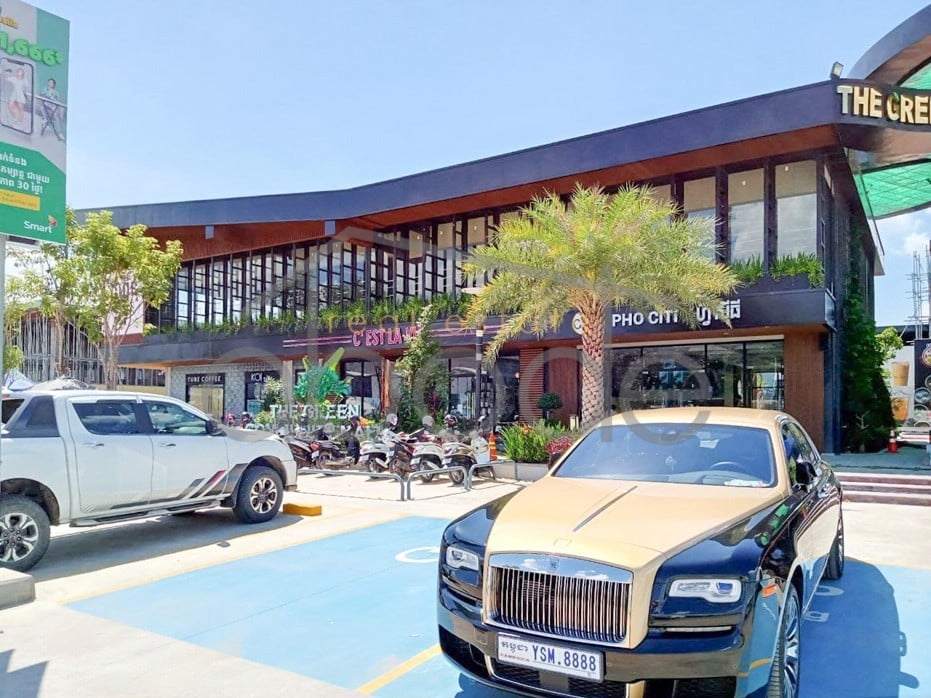Despite claims the Cambodia property market is not healthy enough in 2022 to compete globally, there is evidence this is not the case. The sector has ridden a massive wave of direct foreign investment, mostly from China, with no foreseeable limit, despite COVID-19.
Cambodia property market, mortgages and economic growth
With more and more Cambodians emerging from poverty, local demand is also growing, which is further fueled by the sustained growth of the mortgage market. Mortgages and other housing loans were only introduced in Cambodia in 2008 and by 2010 represented about 1% of GDP and 15% by 2020. By 2020, total outstanding mortgages of owner-occupied housing was US$4.22 billion, up 25% from 2019, largely attributed to falling interest rates and an increase in loan options.
The maturation of the economy has brought more stability and less speculation to the local property market in an economy experiencing 7 – 8% growth from 2000 to 2019. Mostly supported by tourism, garment, construction, real estate and agriculture, all is not roses as these sectors were hammered during the pandemic. This has kept Cambodia one of Asia’s poorest economies, which is still plagued by corruption, income inequality, and low job prospects. Although fewer Cambodians live in poverty now than ever before, more than 50% are younger than 25 years old and lack education and real skills.
Cambodia’s economy contracted by 3.5% in 2020 due to Covid, which is expected to remain weak as impacts of the global pandemic and current macroeconomic factors continue to affect global supply chains. Cambodia has run a current account deficit above 9% of GDP for many years and a major economic challenge going forth is in helping the private sector improve the economy without increasing social inequality.
With the World Bank upgrading Cambodia from a low-income to a lower middle-income economy in 2016, these factors combined present grave challenges for the government as eligibility for foreign aid evaporates.
Economic growth 2022 and beyond
Despite some predictions of a property market crash, due to a condo supply glut and lower demand, most industry leaders generally feel the country is moving in the right direction. The next 5 years’ growth is expected to be mostly in urban areas, specifically in condo and borey developments. Direct and robust foreign investment in Cambodia, rising land prices and a stable political and economic environment supports this.
According to a Phnom Penh Post report, condo prices logged an increase (January – March 2021) as new projects entered the market, although due to lockdown restrictions, lower economic growth and resulting lower local property demand, the increases were lower than expected. The Post remains optimistic about economic growth as the property market normalizes. Investors appear to be making fresh investment decisions and more Cambodians are purchasing more and more homes to live in.
As recently as June 2021, the World Bank forecasted Cambodia’s growth at 4.5% in 2022:
“… Cambodia’s real growth is projected to reach 4.5% in 2022 as anticipated impacts from negative terms of trade are caused by rising oil prices and a cyclical slowdown in America and China. Over the medium term, the economy is expected to trend back to potential, growing at around 6%.
In response, the development bank recommended the Cambodian government continues efforts to contain COVID-19 infection, strengthen consumer and investor confidence, promotion of exports and particularly in agricultural commodities as well as facilitate trade and reduce the costs of doing business, and stabilization of retail prices…”.
Putting all these aspects together, it seems that on balance, the Cambodia property market is healthy enough to compete globally despite its unique challenges.






